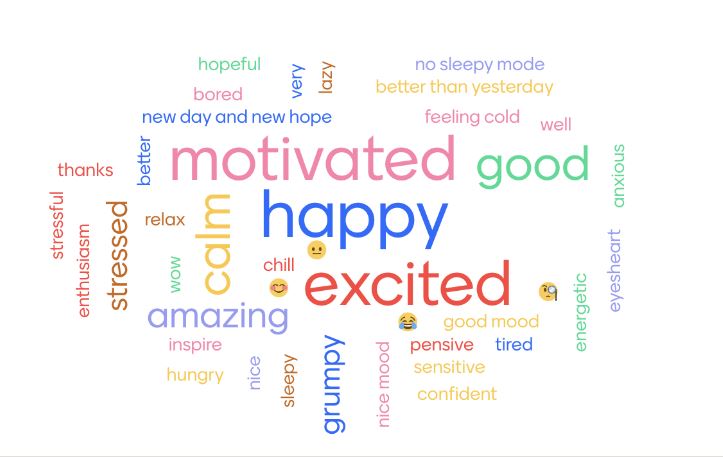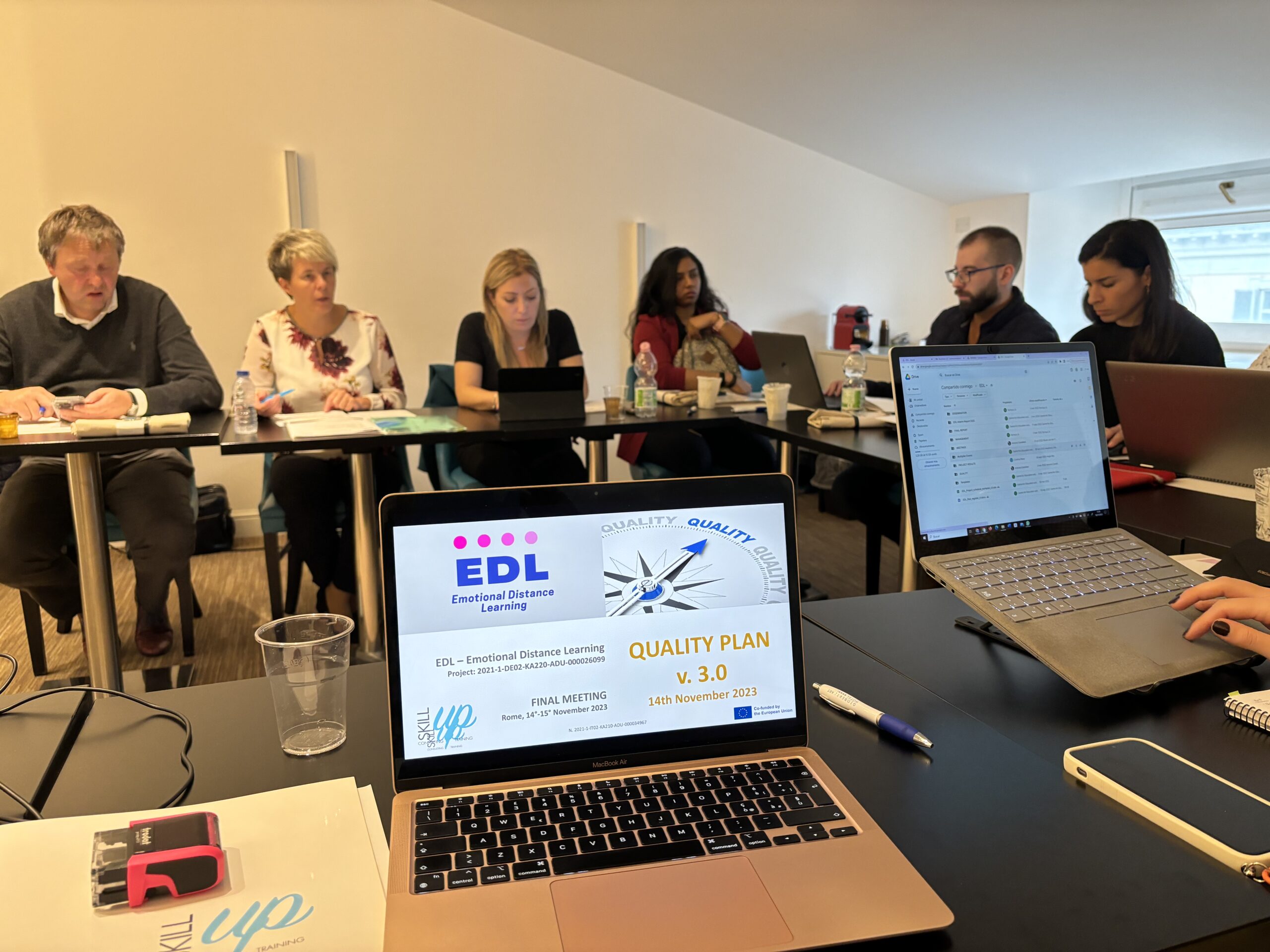By Antonia Castellani, Skill Up
On October the 6th 2023, the first multiplier event of the EDL project was organised by the University of Wismar for a group of 50 post-graduate students from different parts of Europe and the world, with a presentation by Antonia Castellani (Skill Up).
The presentation, titled “Emotions in online learning. EDL, a case study”, represented the first contact with the project’s secondary target audience, the end users, in other words, those who learn online. It also was directed to the project’s primary target audience of teachers/trainers, as a number of those post-graduate students are embarking on academic careers.
The first problem posed by the presentation was to calibrate the approach for an audience primarily consisting of engineers, who are accustomed to privilege analysis and logical thinking, and to consider emotions as a ‘foreign body’ in their nature.
To succeed in engaging them, a simple exercise was carried out: through the www.menti.com website, they were asked to write three words, as answers to the question “How are you today?”.

This exercise resulted in a series of emotions they indicated as their own. From those words, a precise analysis of the sources of such emotions and the results those emotions have in physical, psychological, and behavioural terms was conducted, following the Schemas method.
The next step was to identify the meaning of the word emotion and to analyse its essence: as a result, the conclusion was reached that emotions are complex human activities pertaining to the field of thought. They cannot be set aside, one cannot choose ‘not to have’ emotions and they must therefore be accepted, owned, respected, and managed.
Consequently, the common use of the word ’emotion’, which is mostly related to being irrational and unstable, has been debunked.
This common, incorrect usage was easily identified by asking participants to define what they thought was positive and what was negative in emotions. The positive sides were few and related to a few emotions (happiness, satisfaction, motivation, i.e. the emotions indicated overwhelmingly by the participants as those they felt in the initial exercise), while the negatives were many and related to the field of irrationality.
Following this interpretation, it is assumed that being rational is a good thing while being emotional is considered an excess of sensitivity, instability, and irrationality, with very negative consequences for those displaying such emotions.
If, on the other hand, emotions are considered a part of human thinking, negative connotations can be overcome, especially since the elements of irrationality and instability -often confused with emotions- are usually attributed to children and women, in contrast to ‘rational’ men.
Debunking an approximate definition of emotions therefore also contributes to breaking down gender stereotypes.
The analytical approach to emotions, which was brought forward, was particularly useful for the audience present, who at that point well understood the significance of the need to develop Emotional Intelligence skills, and how important EI can be in the work environment, including learning.
In this regard, the definition of EI given by Mayer, Salovey, and Caruso in “Emotional intelligence: Theory, findings, and implications – 2004” was shared, as “the capacity to reason about emotions, and of emotions to enhance thinking. It includes the abilities to accurately perceive emotions, to access and generate emotions so as to assist thought, to understand emotions and emotional knowledge, and to reflectively regulate emotions so as to promote emotional and intellectual growth“.
Starting from this introduction, it was easy to involve and engage the participants in the EDL Tools: they took the Self-Assessment survey and viewed some of the Modules and related tools.
At the end of the presentation, all the participants showed a great appreciation of the contents of EDL project and were excited about new insight into their way of learning, which includes emotions as a fundamental part of their being and of their behaviours.




0 Comments